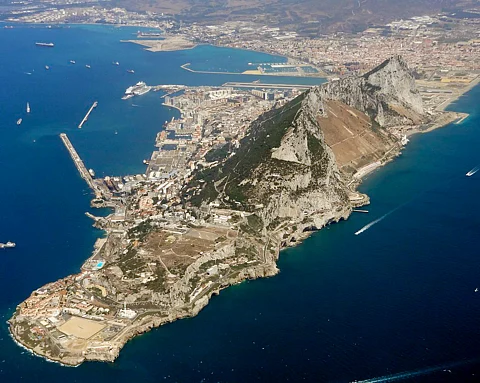

The United Kingdom and the European Union have agreed on a deal to govern Gibraltar’s border with Spain, resolving a key issue left unresolved since Brexit.
The agreement, announced after years of negotiations, aims to avoid border checks on people and goods crossing between Gibraltar and Spain while preserving British sovereignty over the territory. Under the new arrangement, Gibraltar’s airport will host joint passport checks by Gibraltarian and Spanish officials—a system similar to the juxtaposed controls used for Eurostar passengers at London’s St Pancras station.
UK Foreign Secretary David Lammy hailed the deal as a "practical solution" that safeguards Gibraltar’s economy and sovereignty. "This government inherited a situation from the last government which put Gibraltar’s economy and way of life under threat," he said.
Gibraltar’s Chief Minister, Fabian Picardo, welcomed the agreement, stating it delivers "the deal Gibraltar wants and needs—one that will protect future generations of British Gibraltarians and does not in any way affect our British sovereignty."
Spanish Foreign Minister José Manuel Albares and EU Trade Chief Maroš Šefčovič described the agreement as "historic," with Šefčovič calling it a reinforcement of a "new chapter" in EU-UK relations.
While the deal has been praised by negotiators, it has faced criticism from some UK political figures. Reform UK’s deputy leader, Richard Tice, accused the Labour government of "surrender," while Conservative shadow foreign secretary Priti Patel said her party would scrutinize the treaty to ensure it protects Gibraltar’s sovereignty.
Liberal Democrat foreign affairs spokesman Calum Miller called the agreement a step toward a broader UK-EU trade deal but stressed the need for parliamentary scrutiny.
The deal ensures Gibraltar’s integration into the EU’s Schengen zone, allowing smoother border crossings for the estimated 15,000 people who commute daily between Gibraltar and Spain. It also includes provisions on taxation and customs, addressing long-standing concerns about Gibraltar’s low tobacco levies.
A clause in the agreement explicitly states that the treaty does not affect British sovereignty over Gibraltar, a point of contention since the UK acquired the territory in 1713.
Gibraltar, a 2.6-square-mile British Overseas Territory, has been a diplomatic flashpoint for centuries, with Spain maintaining a territorial claim. The territory’s post-Brexit status has been a persistent challenge, particularly with the impending rollout of the EU’s Entry/Exit System, which threatened to disrupt daily border crossings.
Public opinion in Gibraltar remains strongly in favor of British sovereignty, with 99% of voters rejecting shared sovereignty with Spain in a 2002 referendum.
Negotiators will now finalize the legal text of the treaty, with Šefčovič expressing confidence that it will be ratified. "We found the best possible response for every challenge," he said.
The agreement marks a significant step toward stabilizing Gibraltar’s post-Brexit relationship with the EU while maintaining its unique constitutional status.